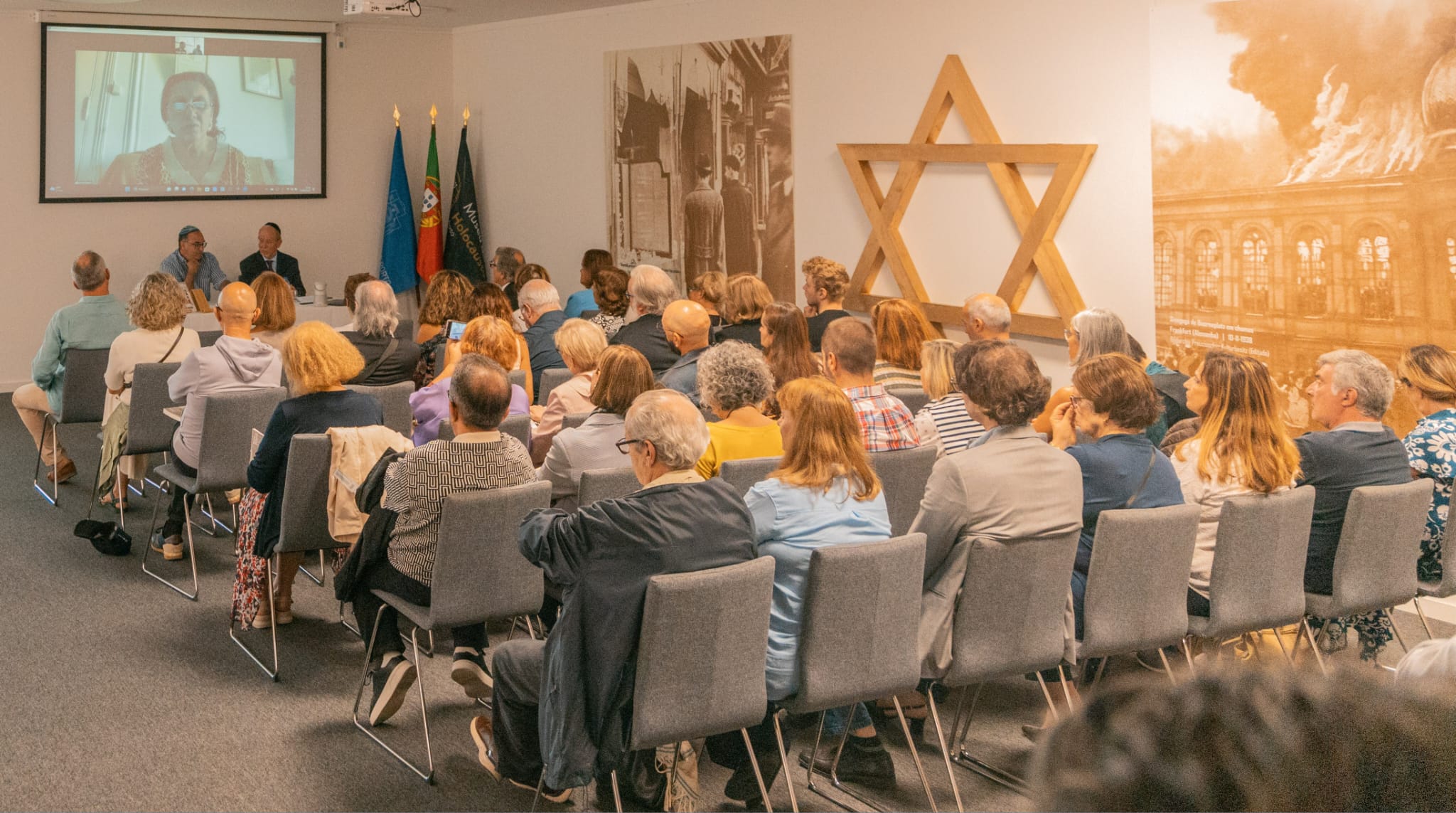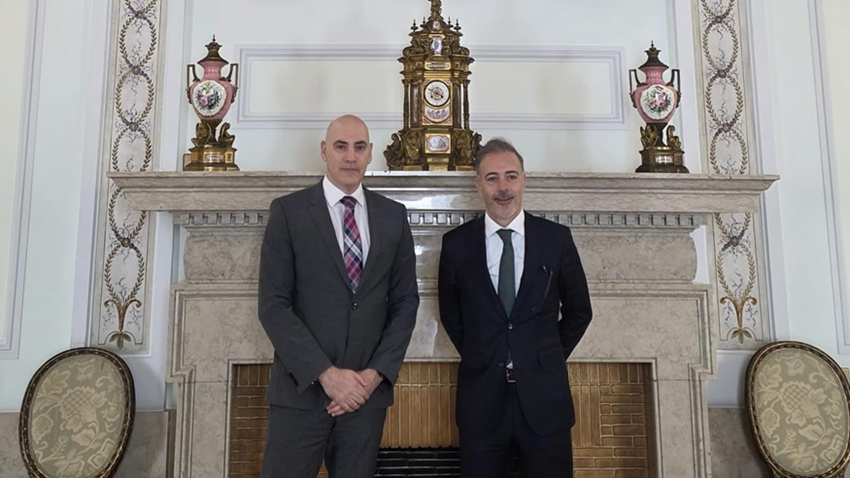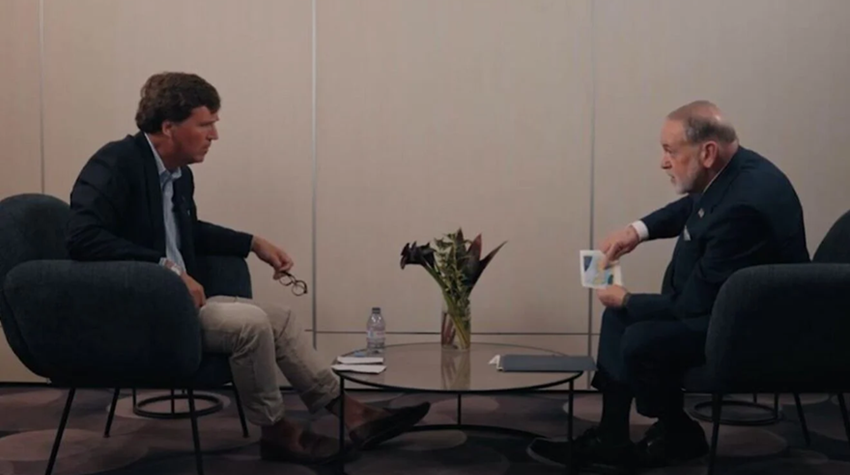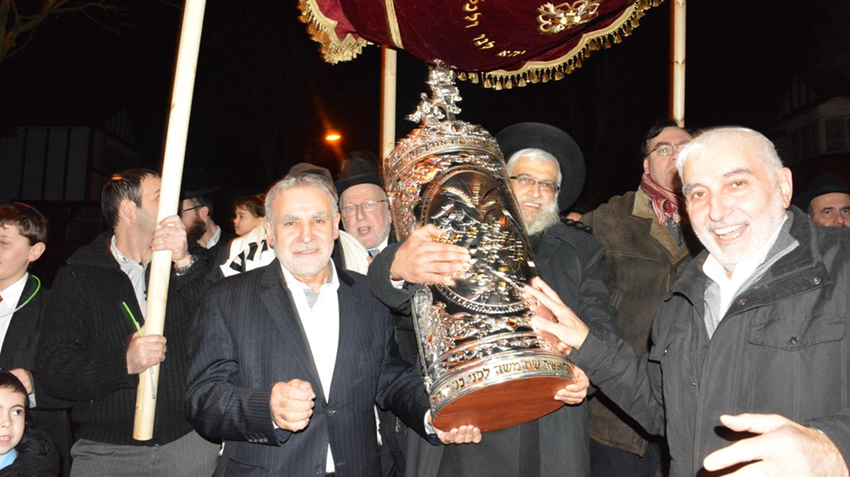Book presentation "Portugueses na Lista Negra de Hitler". Credit: CIP/CJP
This Sunday, September 3, the Jewish Community of Oporto celebrated the “European Days of Jewish Culture”, on which the Synagogue, the Jewish Museum, the Holocaust Museum and kosher restaurants were open to the general public.
The date is celebrated annually in the main cities of Europe on the first Sunday in September. This was the second year that the Jewish Community of Oporto joined the event, which was attended by thousands of people.
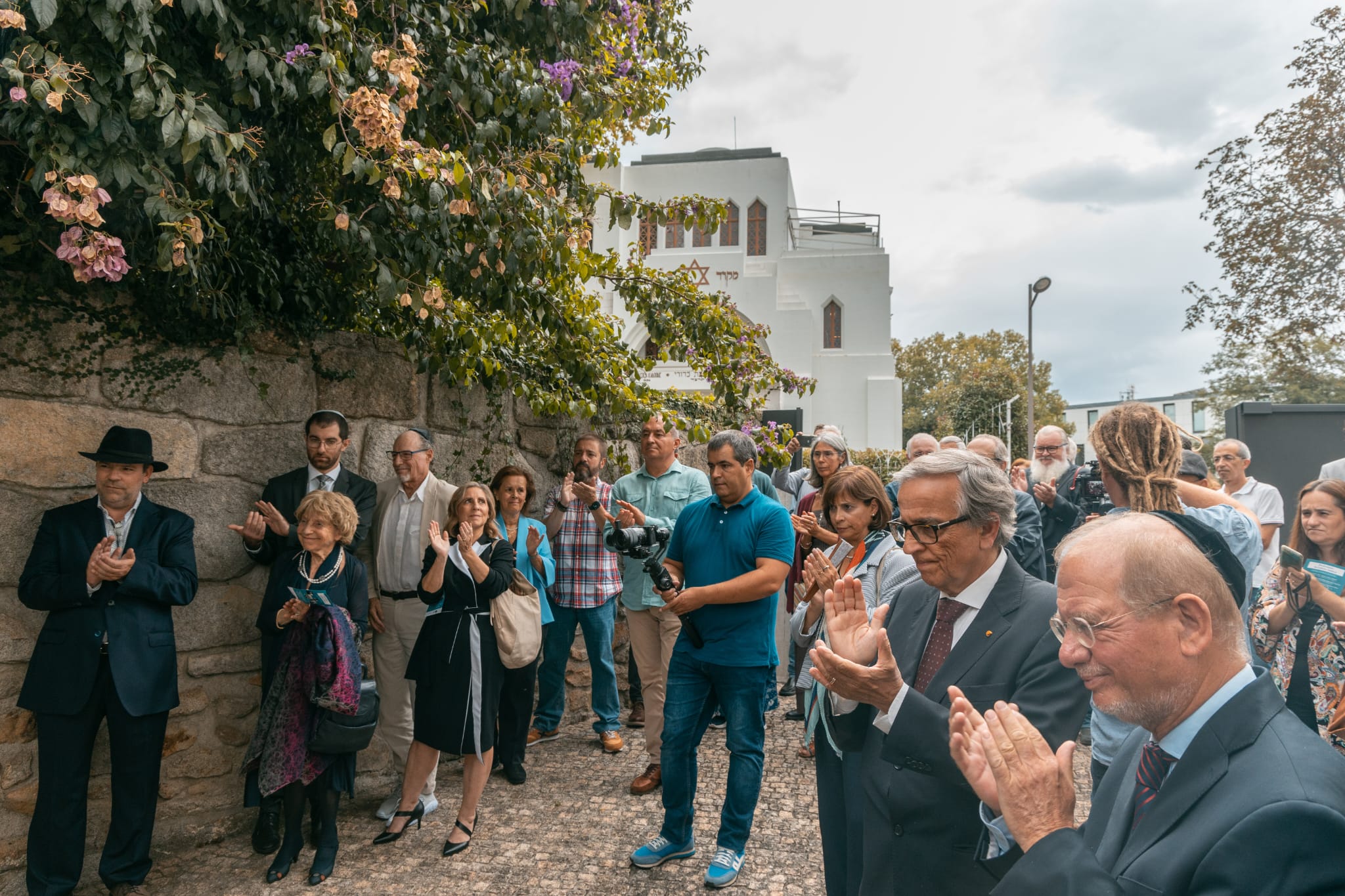
The inauguration of a Memorial to the Victims of the Inquisition. Credit: CIP/CJP
The program began with the inauguration of a Memorial to the Victims of the Inquisition at the Jewish Museum of Oporto, at which the speakers were the Director of the Jewish and Holocaust Museums of the CIP/CJP, Dr. Michael Rothwell, the National Coordinator of the European Strategy to Combat Antisemitism and Promotion of Jewish Life in Portugal, Dr. Pedro Bacelar de Vasconcelos, and the President of the Municipal Assembly, Dr. Sebastião Feyo de Azevedo.
In his speech, Dr. Pedro Bacelar de Vasconcelos emphasized that fear is something that Jewish communities have become accustomed to knowing and facing. “It is against fear and the hypocritical temptation of oblivion that we stand here today,” he declared. Dr. Sebastião Feyo de Azevedo spoke about the importance of Jews in the history of humanity, remembering that they were essential for the development of the city of Oporto, with great participation in the commercial and maritime sector.
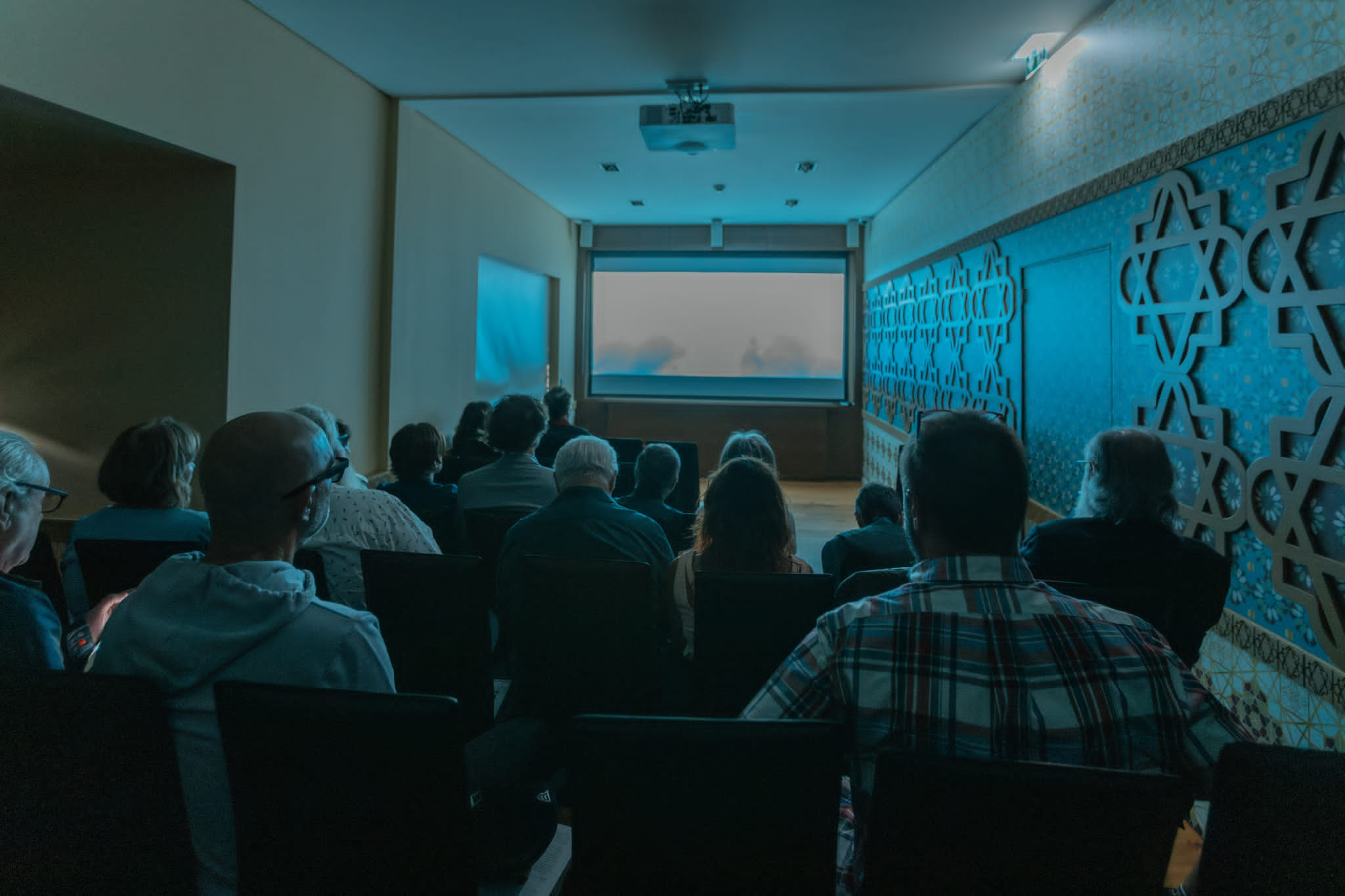
The film “Sefarad” in the cinema of the Jewish Museum of Oporto. Credit: CIP/CJP
At the Jewish Museum of Oporto, three sessions of the award-winning film “Sefarad” were also shown, which tells the story of the Jewish Community of Oporto, which in 2023 turned 100 years old. After the screening, the public had the opportunity to talk to Isabel Lopes, vice-president of the CIP/CJP and granddaughter of Captain Barros Basto, known as the “Portuguese Dreyfus”.
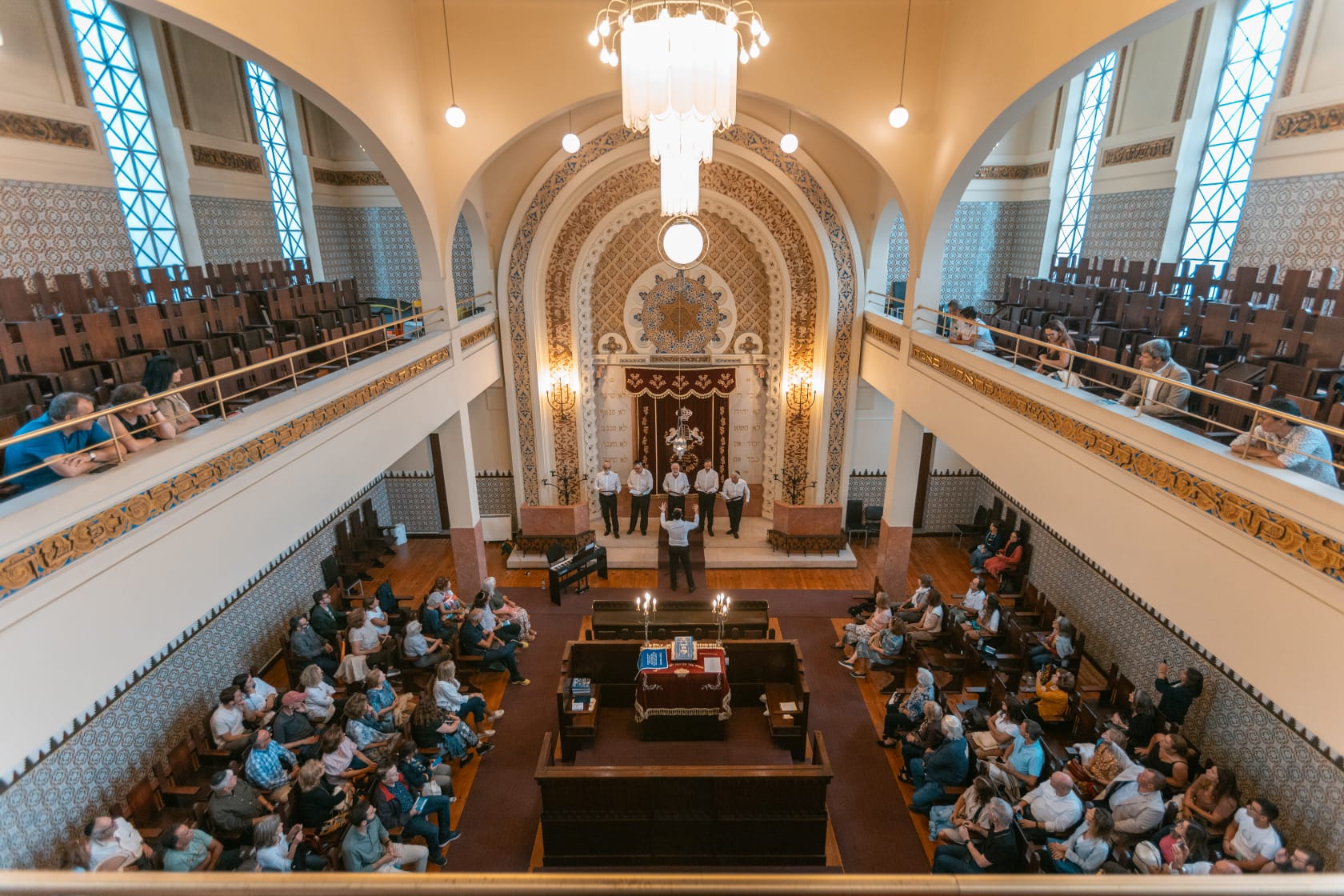
Performance by the Mekor Haim Choir in the Synagogue’s Prayer Room. Credit CIP/CJP
Across the street, the public was able to visit the Kadoorie Mekor Haim Synagogue on the only day of the year when this is possible. On all other days, the temple is open only for prayers and activities of the Jewish community. On the first floor of the Synagogue there were 15 large paintings created under the coordination of Flor Mizrahi, an artist of the Jewish Community of Oporto, which portray the ancient history of Jews in Oporto. In the late afternoon, the Mekor Haim Choir sang liturgical songs in the main Prayer Room. The room was full.
At the Holocaust Museum of Oporto, the book “Portugueses na Lista Negra de Hitler”, by Miriam Assor, was presented by César Santos Silva, on Sunday morning, and by Richard Zimler, on the afternoon of the same day. In the same place, Josef Lassmann, member of the CIP/CJP, spoke to the public about the story of his mother, Holocaust survivor Chaja Lassmann, who was in block 10 of Auschwitz, where Josef Mengele, known as the “Angel of Death”, experimented with prisoners. Lassmann's father, also a survivor, never said a word about his experiences. He lost his entire family in the Holocaust and decided to move on.
The kosher restaurants Ibéria and Hotel da Música were open to the general public, serving food prepared in accordance with Jewish laws and supervised by the Jewish Community of Oporto.
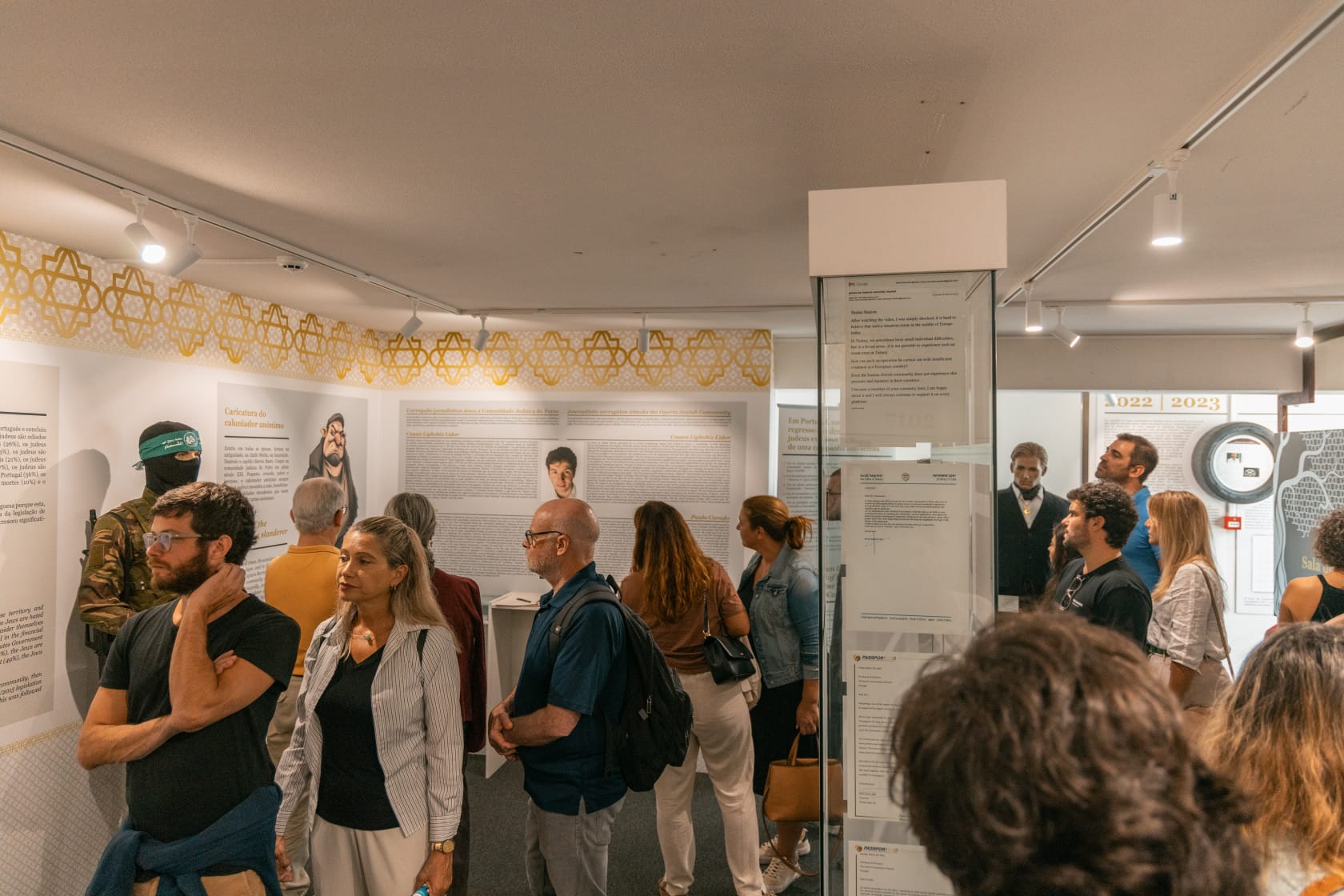
The modern antisemitism room at Jewish Museum of Oporto. Credit: CIP/CJP
Part of the program took place in the modern antisemitism room that the Community set up at the Jewish Museum. The exhibition portrays the evolution of antisemitism in Portugal from 2014 to the present. A decade ago there was no antisemitism in the country because there were no Jews. The eternal scourge made its appearance when Portugal no longer had a dead community, without minyan in synagogues, without achdut centers, without kosher restaurants, without museums, without anything to disguise the extreme penury.
Antagonism toward Jewish tradition, Jewish success, and israelism manifested itself first on social media, then in popular movements against the construction of Jewish buildings, then in the false connection of Jews with money, business, and trickery, and finally, in a police raid carrying out political orders at a Synagogue, based on anonymous letters from criminals, an action that led members of the Community to emigrate - claiming they did not want to return to the Poland of the 40s.
The exhibition on “The Day of Shame” is today part of the history of an ancient community that maintains all its religious, cultural, educational and philanthropic activities.
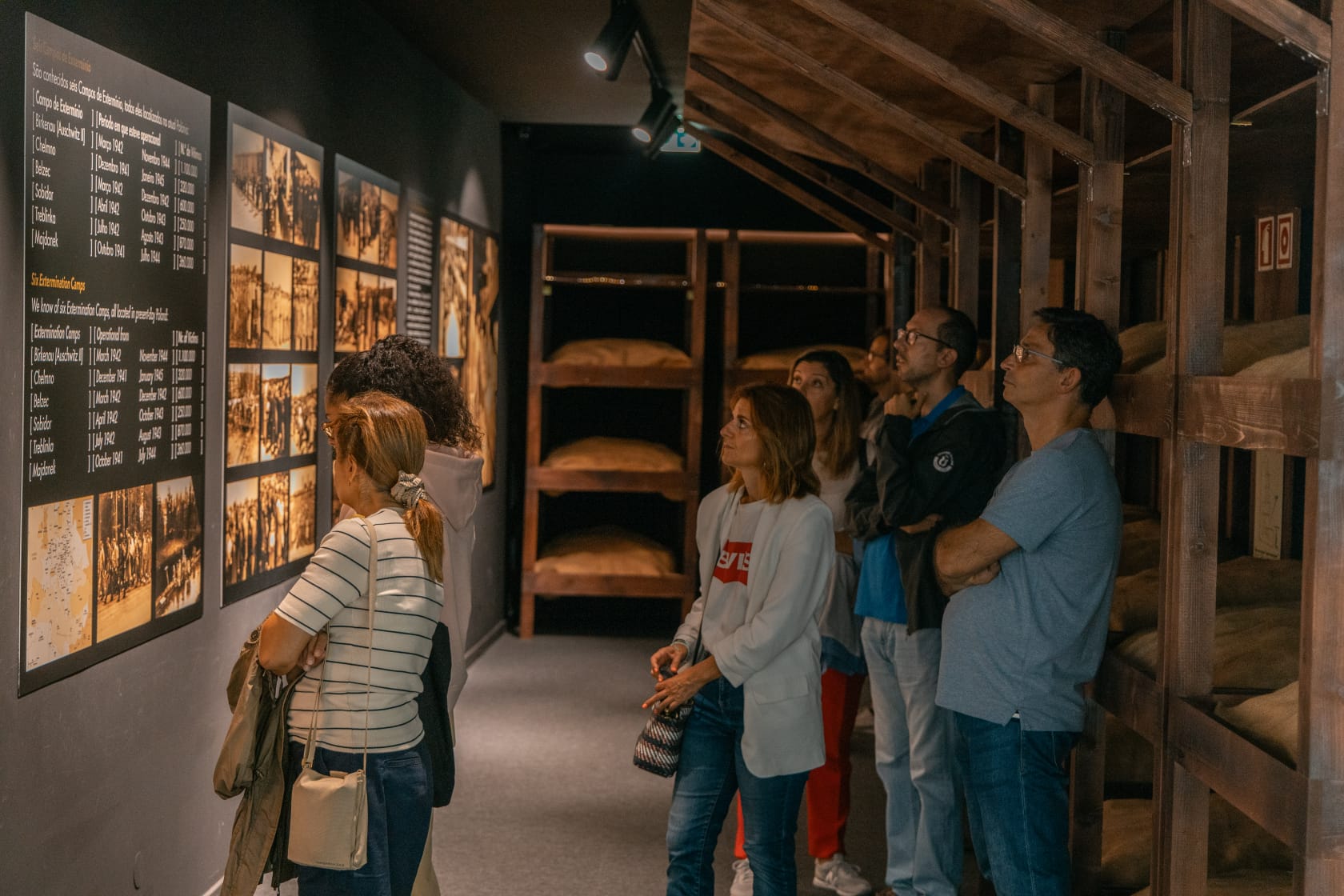
The Holocaust Museum of Oporto. Credit: CIP/CJP
The “European Days of Jewish Culture” is an initiative of the European Association for the Preservation and Promotion of Jewish Culture and Heritage and the National Library of Israel and, in Oporto, was supported by the European Jewish Association and B'nai B' rith International.































